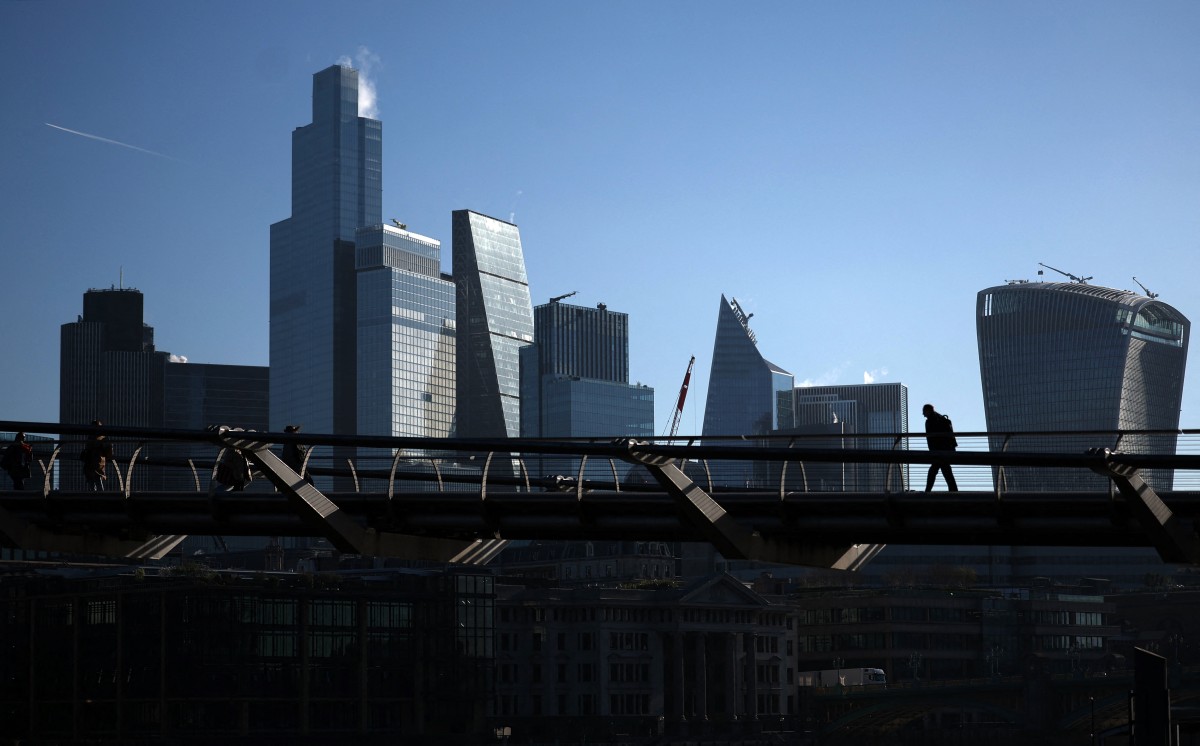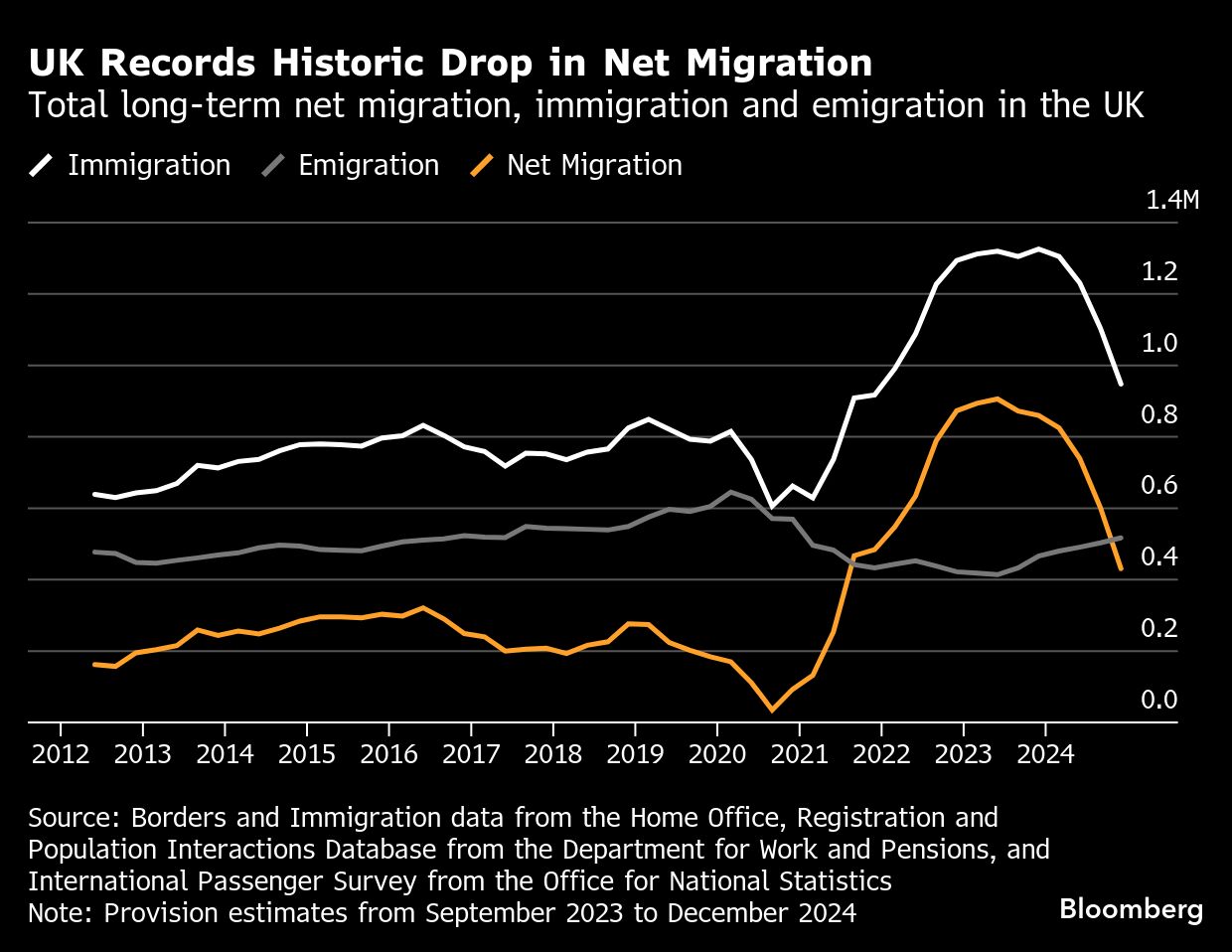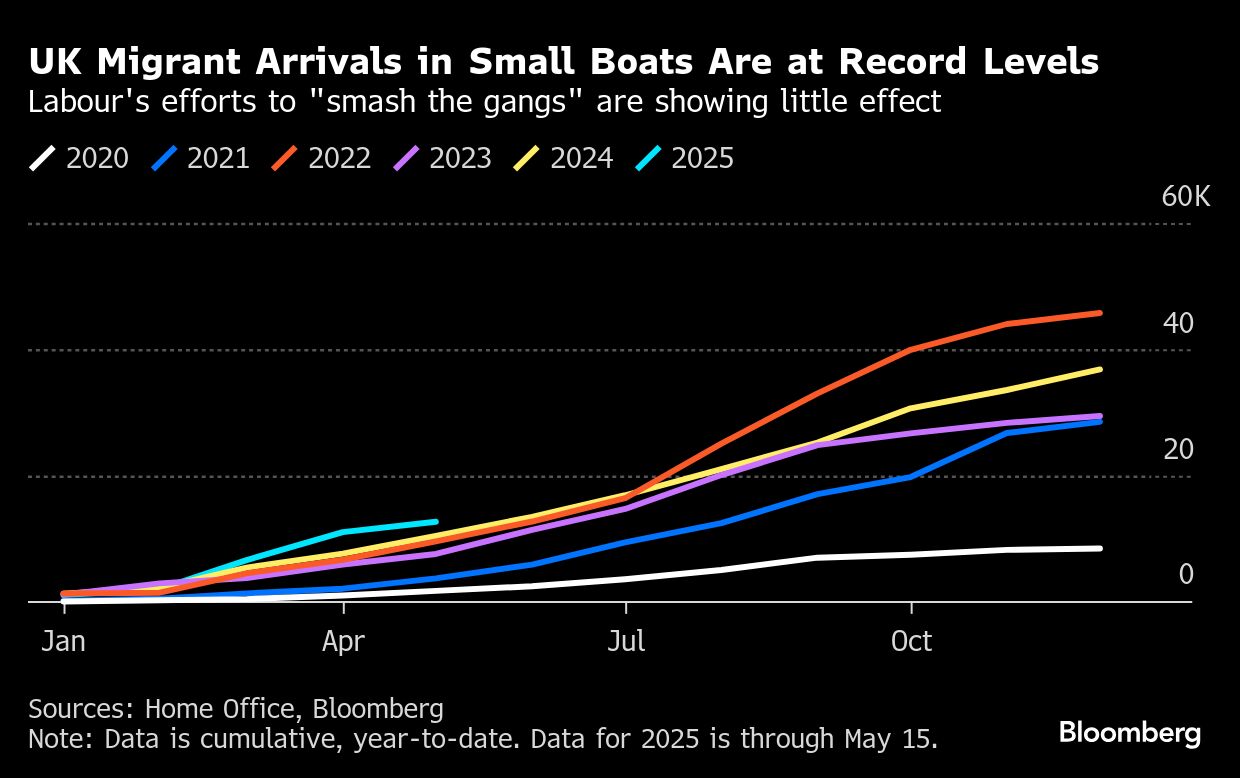
Net migration to the UK tumbled by nearly 50 percent to 431,000 in 2024, a record drop and a welcome development for Prime Minister Keir Starmer as he tries to win back voters attracted by Nigel Farage’s right-wing Reform party.
The fall in 2024 was driven by fewer people coming to work and study in the UK, following Conservative-era measures tightening salary requirements for skilled workers and preventing most care workers and students bringing dependents. Labour has also clamped down on employers exploiting migrant care workers.
The overall numbers mark a further decrease from the record 906,000 net migration figure — the difference between those arriving in the UK and leaving — seen in the year to June 2023. That came at a time when the UK was recruiting skilled workers across a range of sectors to fill post-Brexit staffing shortages.
The 49.9 percent slide from 860,000 in 2023 — itself revised downwards by 6,000 — was even bigger in percentage terms than the 49.5 percent drop in 2020 during the pandemic, when travel restrictions halted much of the flow of migrants. Last year, the number of people entering the country fell to 948,000 — the first time that number has been below 1 million since the year ending March 2022.
ALSO READ: UK proposes tightening visa rules to reduce legal migration

The data from the Office for National Statistics will be a relief for Starmer, who has redoubled efforts to appear tough on immigration after the Reform UK party won swathes of seats in a round of local elections earlier this month. Public concerns around the level of migrants arriving in the country led to protests which escalated into far-right riots in the summer of 2024.
The prime minister last week unveiled a long-awaited set of reforms to the immigration system, vowing to bring arrivals to the UK down further by ending the overseas recruitment of care workers, limiting the industries which could hire skilled migrant workers, and doubling the timeline over which migrants can apply for settlement.
While the reforms themselves were generally seen as measured, Starmer’s language in a speech — including dubbing the future of Britain as an “island of strangers” — was criticized for invoking far-right rhetoric.
Starmer’s recent efforts are aimed at driving down the level of legal migration. But that’s not necessarily going to win back voters drawn to Reform, who are increasingly concerned about the number of undocumented migrants coming to the UK, including on small boats across the English Channel. The number of people arriving on small boats is at a year-to-date record.

When Labour came to power last July, the government ditched the Conservatives’ controversial plan to send some asylum seekers to Rwanda. It has instead focused on reducing the backlog of asylum claims by processing them faster, and therefore reducing the number of people housed in expensive hotels while their claims are awaiting a decision, and ramping up deportations of those who no longer have the right to remain in the country.
On Wednesday night, the Home Office announced it had returned nearly 30,000 people to their country of origin since July — a 12 percent increase compared with the same period a year earlier.
“The rules need to be respected and enforced,” said Home Secretary Yvette Cooper. “That is why we have substantially increased immigration enforcement — taking strong action to return more foreign criminals and failed asylum seekers who have no right to be in the UK.”


